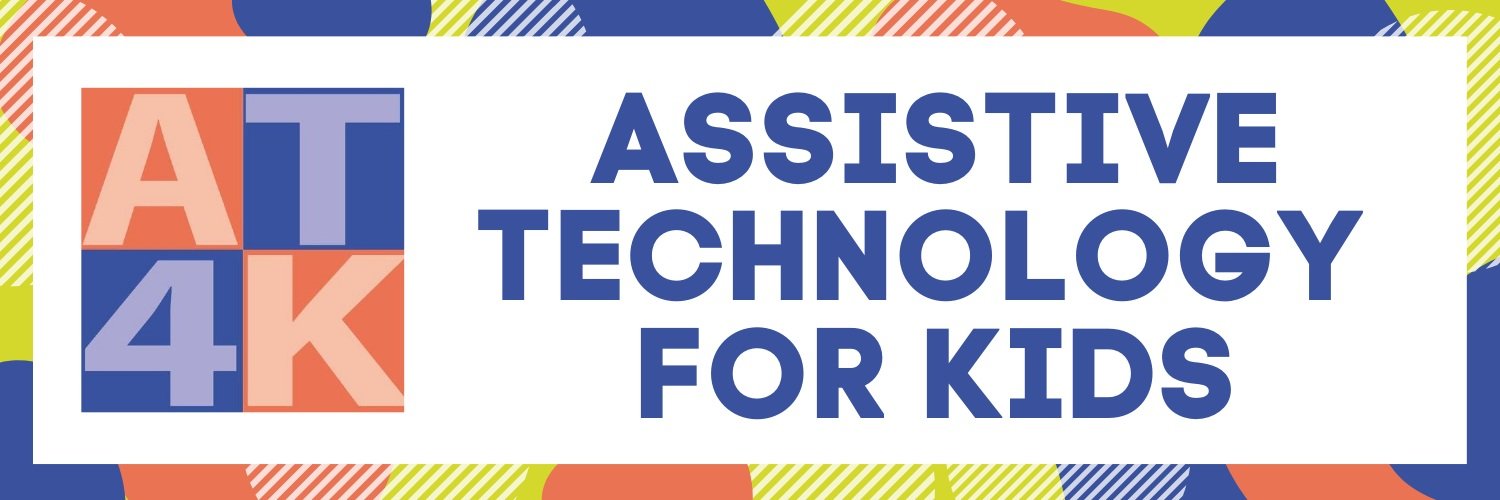
Resources
Core Vocabulary in the Classroom
Resources for easily implementing core vocabulary in your classroom without breaking the bank.
Assistive Technology 101
What is Assistive Technology? How does it apply to special education? What are the laws about AT?
AT for Reading & Writing
Assistive Technology resources for reading and writing that address address disabilities in tracking (such as dyslexia), mobility and dexterity, and low vision.
AT for Math
Assistive Technology Tools for Math--whether the issue is a learning disability such as dyslexia or dyscalculia, limited dexterity, or low vision
AT for Social Interaction & Behavior
"Thanks to assistive technology (AT), opportunities for improving communication and relationships are expanding for children with social/emotional challenges. There are thousands of devices and programs (apps) designed to aid communication, teach life skills, improve academic and social learning, and reduce frustrations that can lead to destructive behaviors." -Center on Technology and Disability
AT for Organization & Executive Function
Can't remember? Can't organize your thoughts? Can't focus? There's an AT solution for that!
Free AAC Communication Symbols
Creating resources can sometimes be cost prohibitive. However, there are some AAC communication symbols, boards, and other visual supports that you can get for free.
Switch Accessible Games
You’ve got your switch, now what? You need some games to get the ball rolling! Here is our list of switch accessible games and activities—some are even free!
AAC Resources
Alternative and Augmentative Communication (AAC) website resources. Whether you need help with assessment, selection, implementation, there resources available to help you with the process.
AEM
Resources for Accessible Educational Materials (AEM)—and relatedly Accessible Instructional Materials (AIM)—which can help provide access to print-based learning and all other curricular resources.
LiveBinders
LiveBinders on a variety of AT, AAC, special education, and disability topics created by AT4Kids. Most of the resources for our events and presentations are available here.
Tennessee Association for Assistive Technology
The Tennessee Association for Assistive Technology (TAAT) offers information and resources about AT and provides professional development opportunities for AT providers. For over a decade, TAAT has been holding an annual conference in Franklin, Tennessee covering all aspects of AT in the educational setting.
Tennessee Talks
The Tennessee Talks grant allows schools to receive free support from Assistive Technology (AT) specialists working with the school teams. These specialists meet schools and students where they are – assessing the need for technology supports and connecting students with appropriate Augmentative and Alternative Communication (AAC) systems.

AT Policies for Tennessee
Mandated by federal law, school systems must now “consider” assistive technology in the planning process when addressing the academic needs of children with disabilities. Although many districts across the state of Tennessee have formally adopted policies and procedures to guide the implementation of assistive technology within their particular school system, the State Department of Education has not. In an effort to offer guidance, Tennessee Association for Assistive Technology (TAAT) has created a uniform set of terms, definitions, and descriptions, as well as general policies and procedures to support consistency with the use of assistive technologies in the educational setting. These policies are intended to support, not replace those adopted by individual districts.
Policies and Procedures to Guide the Implementation of Assistive Technology Services Within the Special Education Setting
















